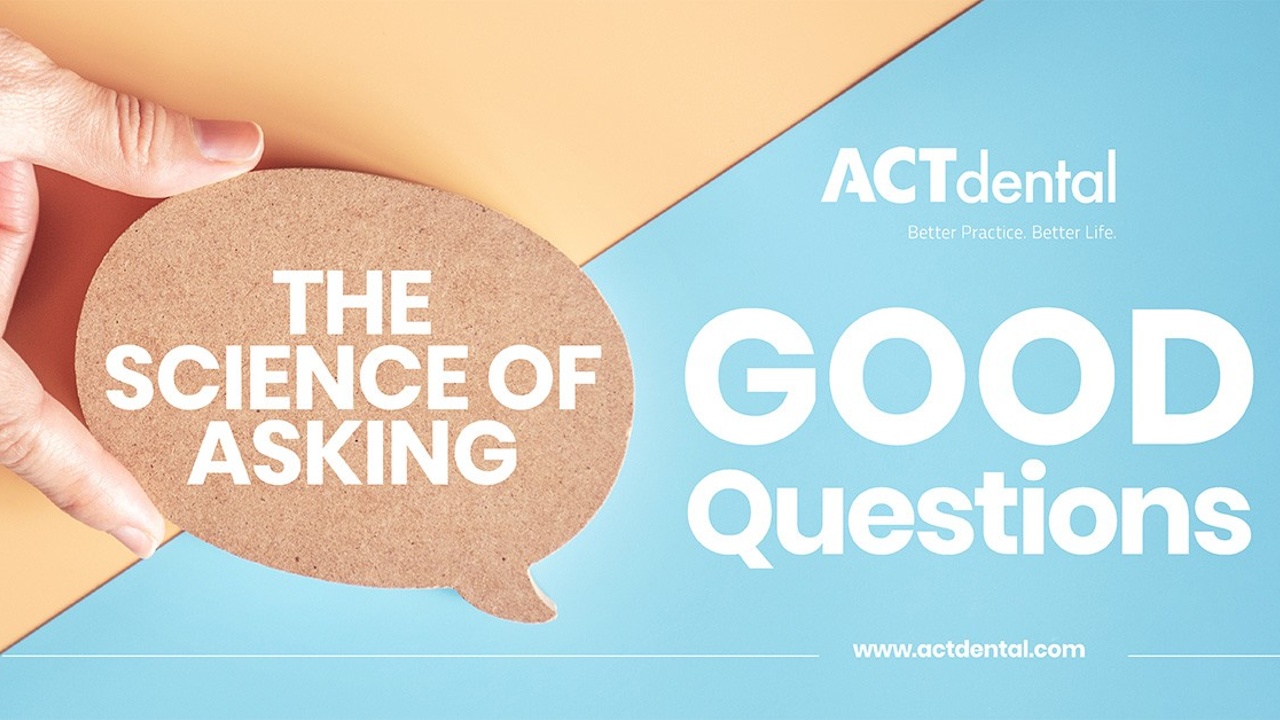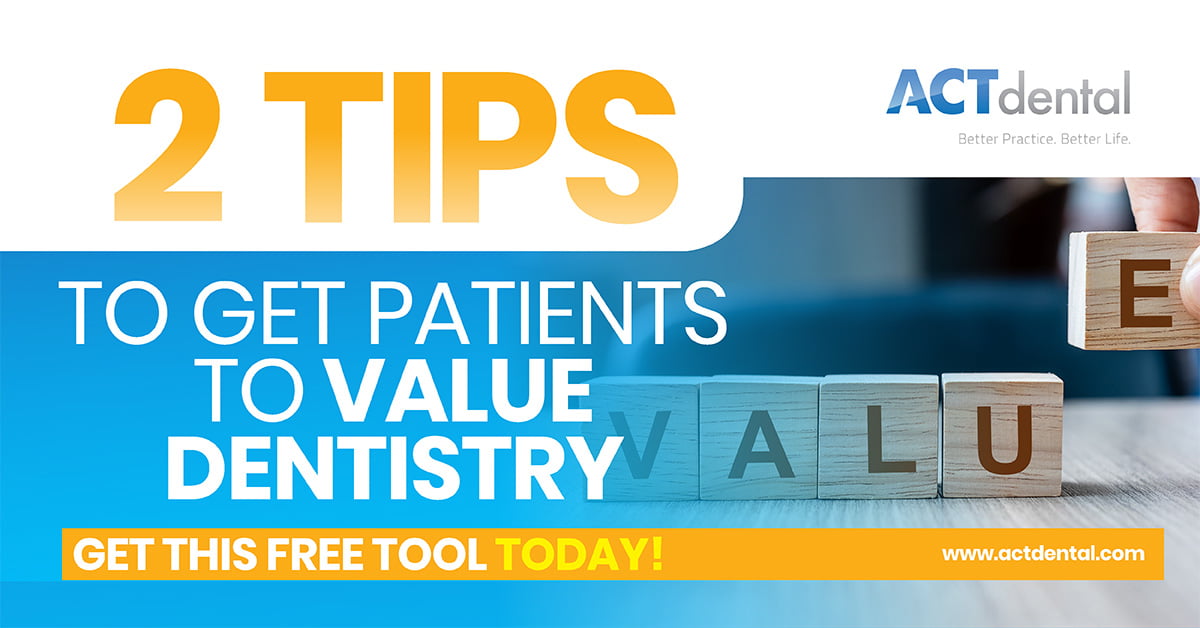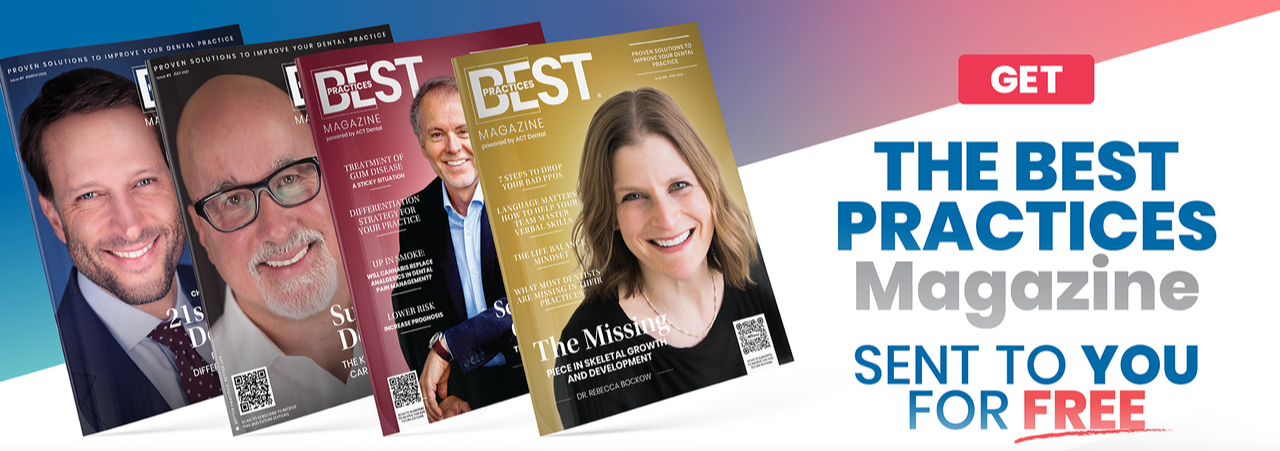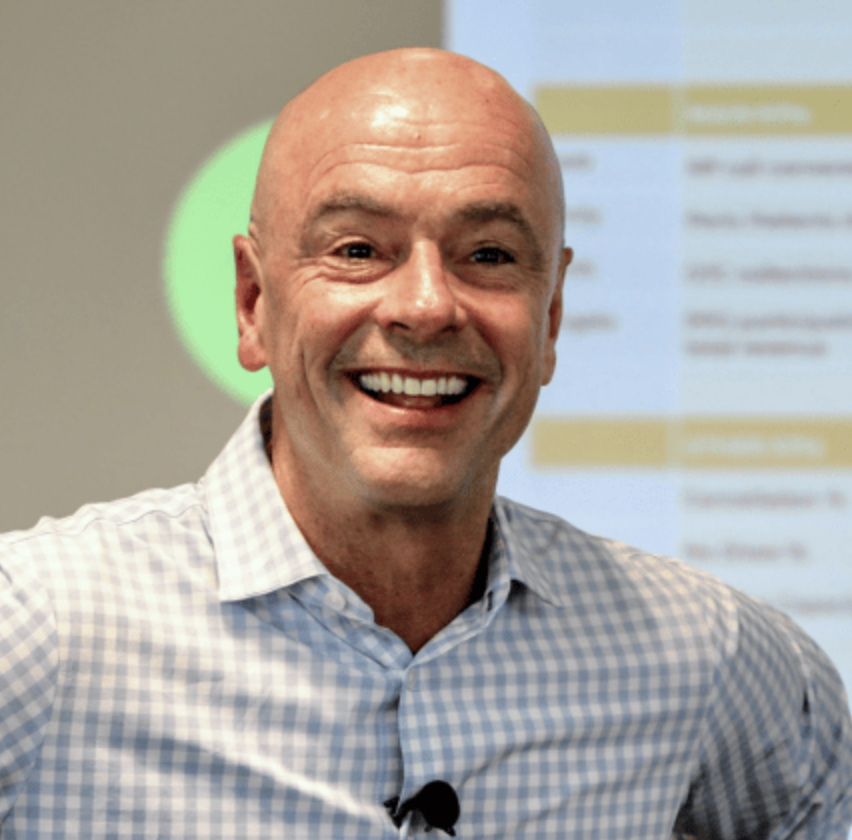There definitely is an art and science to treatment presentation. Last week I advised us all to “show, not tell” when presenting treatment to our patients. This week, I will share an advanced communication strategy for gaining treatment acceptance that centers around asking great questions. I will share the science supporting this recommendation, the #1 key to asking great questions, and my favorite three open-ended questions I use in my dental practice.
“It is not the answer that enlightens, but the question.” – Eugene Ionesco.
If you are like me, you might think this quote is a little too philosophical. More than that, it flies in the face of how many of us were trained to present treatment. As dentists, aren’t we the experts, and don’t our patients want and expect us to simply tell them what we see and what treatment is needed? My answer is “Yes...and mostly no”. In fact, instead of answering that rhetorical question, let me follow my advice and pose a few questions. What if we also found a way to create curiosity in the patient in addition to telling and recommending? How satisfying would it be to have your patients partner with you in their path to oral health? Would your treatment acceptance increase if you could find a way to truly help your patients find value in your dentistry versus accepting out of fear of the consequences?
You see, the most significant misconception many of us have is that the patient’s acceptance of treatment is about us. This thinking is still a holdover of medical paternalism from the 19th century. The movement away from paternalism in medicine didn’t even begin until the middle of the 19th century when psychologists such as Josef Breuer and Sigmund Freud urged that great importance be placed on communication with and an understanding of the patient.
Your patient’s treatment acceptance isn’t about you. It’s all about them. Their perceived value of dentistry. Their perception of their health or lack thereof. Their life and all the other balls they are currently juggling. And maybe most of all, how you and your team make them feel. I know...feelings, really? However, I’ll show you how this touchy-feely statement is rooted in the hard evidence of science.
First of all, behavioral science has repeatedly proven that people prefer being around those they like. They also have shown we all buy more from people we like. While we must always strive to be the best clinicians we can, when a patient says, “I love my dentist,” it is a response rooted in how our dentistry makes them feel rather than excellent clinical technique. In addition, numerous studies on likeability have shown that asking good questions and being a good listener are paramount. If you wish for your patients to value your dentistry and accept your recommendation, you simply have to listen to what science tells you.
Neuroscience tells us it would be wise to ask our patients insightful questions instead of telling them what they need.
It all starts with neuroplasticity. The adult brain, not hardwired as previously thought, can literally change in a way that encourages creative thinking and new knowledge. Brand new neural connections form every time we think creatively and are forced to solve our own problems. Questions are the catalyst that can move the brain into this contemplative mode of strengthening existing neural connections and forming entirely new neural pathways. When a neural pathway is strengthened, it becomes easier in the future for it to fire. This is why it gets easier and easier to do something and why repeated behaviors become habits. It’s also why it becomes easy to think a certain way.
Good questions affect how the brain processes information. Asking open-ended questions triggers a mental reflex called instinctive elaboration. This reflex hijacks the brain’s thought process. We know through research that the brain is poor at multitasking and can only focus on one thing at a time. When you ask good open-ended questions of your patients, they are forced to think and reason. This masks their underlying uncertainty, fear, and preconceived notions. Only when this happens can the patient become curious about their dental condition and possible solutions. Behavioral scientists describe how questions can create the “mere measurement effect,” where asking a person about a future action increases the likelihood of that action taking place. Merely asking your patients to contemplate what they want for their dental care, if nothing else, increases the chance they will follow through on that care.
The #1 Key to Asking Great Questions - Embrace the awkward silence!
The long pause after an open-ended question can feel uncomfortable. A few seconds feel like minutes, and many of us fill that silence with follow-up questions or rationalizations meant to save the patient. Your challenge is to fight this temptation. The silence is success. It represents the patient’s brain thinking, reasoning, and searching for a solution. It represents the patient transitioning from the emotional rear brain into the logical frontal cortex. Anytime a patient can contemplate their own solution to their own problem, you have found the holy grail of treatment presentation. Don’t fill the awkward science. Wait for the patient to think, reason, and then respond.
My 3 Favorite Open Enders.
- What Else?
The first answer you hear is never the complete answer, nor is it accurate. When asking “what else?” you give the patient a chance to elaborate. It also slows down your desire to provide answers and advice.
- Tell me more.
Similar to the first question, it allows patients to elaborate. This also shows your patient you are actually listening and genuinely interested in what they have to say. This is a key to being a good listener; it also builds your likeability factor and the patient’s trust in you.
- What is most important for you?
It is wise to ask what the patient wants and then deliver on it. Most patients have never been asked by a dentist to think about the level of care they want and what their treatment goals are. Going down this road with your patients will be revealing and will build them up to be partners, not just patients.
Use a softener on the front end of your open-ended questions.
Sometimes we have to soften our questions, so they aren’t so direct. My favorite softener is “Just so I understand better….”
Just so I understand better, tell me more about your goals?
Just so I understand better, what is most important for you?
Just so I understand better, what is the challenge here for you?
People don’t learn when you tell them something. Often people need to learn they desire better dental health. This learning happens through discovering the problems at hand, considering possible solutions, and ultimately the autonomy to choose freely. Asking great open-ended questions helps the patient generate the answer themselves, and the odds of real learning increase substantially, right along with the acceptance of the treatment they need.
Dr. Barrett Straub is the Director of Education and ACT Dental. He also practices general and sedation dentistry in Port Washington, WI. He has worked hard to develop his practice into a top-performing fee-for-service practice that focuses on improving the lives of patients through dentistry.
Categories
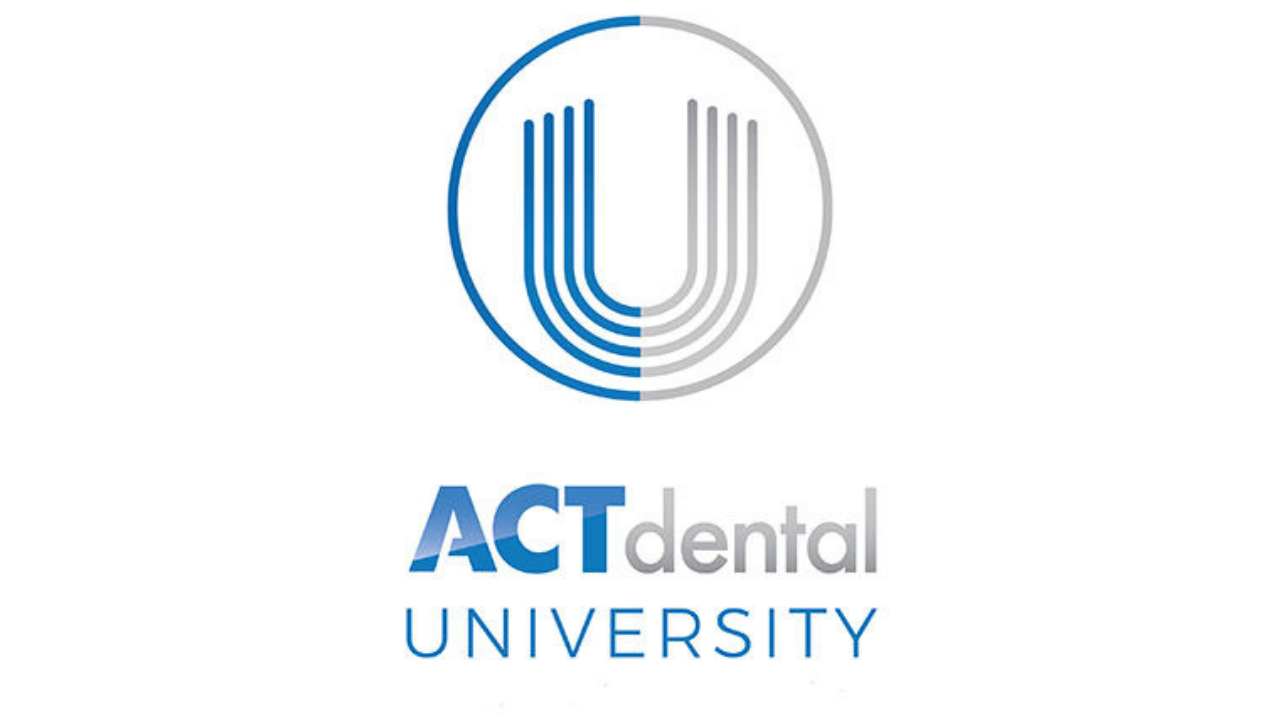
Get access to the best dental educators on the planet to bring you "best practices" and help you become the dentist you were called to be. Watch what you want, when you want it. It's 24/7 on-demand access. Friday's we host "Master Classes" with the very best dental speakers you will ever see.
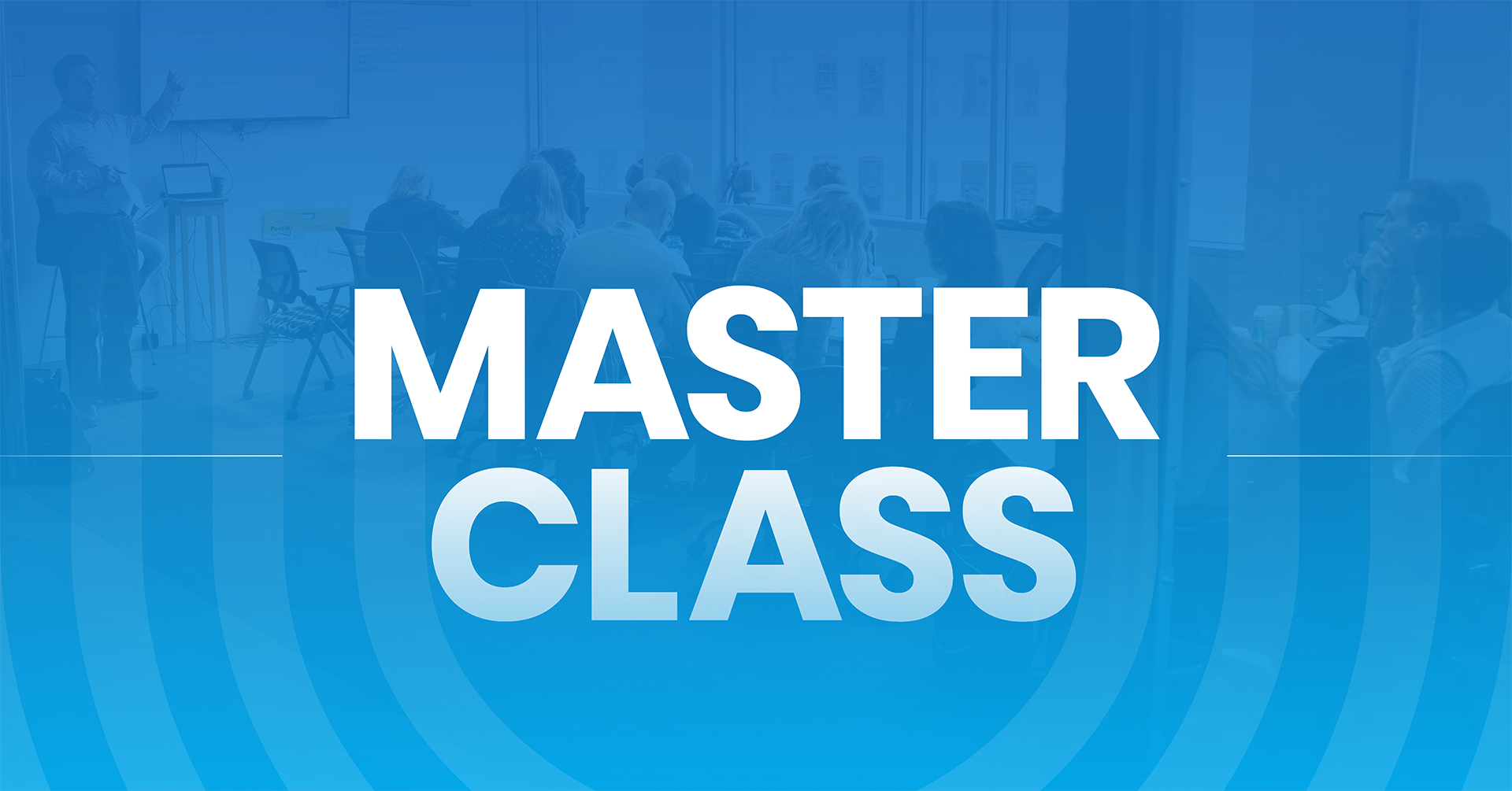
Reserve your spot at the next ACT Dental Master Class
Learn From One of the Best Educators During Our BEST PRACTICES MASTER CLASS Experience.
Kirk Behrendt
Kirk Behrendt is a renowned consultant and speaker in the dental industry, known for his expertise in helping dentists create better practices and better lives. With over 30 years of experience in the field, Kirk has dedicated his professional life to optimizing the best systems and practices in dentistry. Kirk has been a featured speaker at every major dental meeting in the United States. His company, ACT Dental, has consistently been ranked as one of the top dental consultants in Dentistry Today's annual rankings for the past 10 years. In addition, ACT Dental was named one of the fastest-growing companies in the United States by Inc Magazine, appearing on their Inc 5000 list. Kirk's motivational skills are widely recognized in the dental industry. Dr. Peter Dawson of The Dawson Academy has referred to Kirk as "THE best motivator I have ever heard." Kirk has also assembled a trusted team of advisor experts who work with dentists to customize individual solutions that meet their unique needs. When he's not motivating dentists and their teams, Kirk enjoys coaching his children's sports teams and spending time with his amazing wife, Sarah, and their four children, Kinzie, Lily, Zoe, and Bo.
RECENT POSTS
Is Your Practice Stuck? The Dusty Mirror Reveals Why
February 23, 2026
Data Snapshot: Pre-Appointment Percentage
February 20, 2026
One Case Doesn't Define Your Practice!
February 16, 2026
Ask the Right Questions to Hire the Right People
February 13, 2026
Bring Back Common Sense
February 09, 2026
Data Snapshot: Treatment Dollar Amount Acceptance Percentage
February 06, 2026
The Sweet-Spicy Formula For Confident, Kind Collections
February 02, 2026
Reveal Your Practice’s Hidden Profits
January 30, 2026
1000: Metric Mondays: Supplies Percentage - Ariel Siegel
January 26, 2026
5 Simple Ways To Build Trust Today
January 26, 2026
